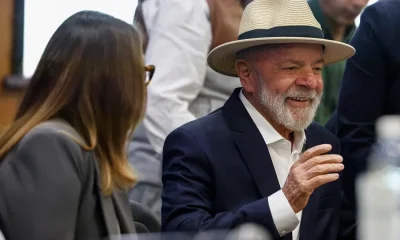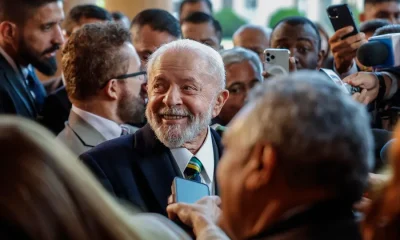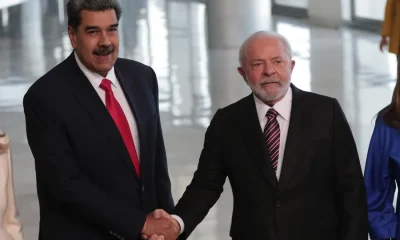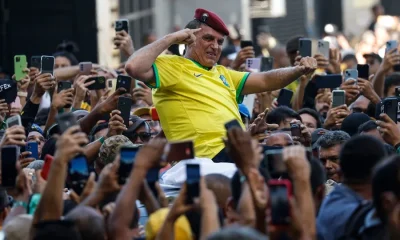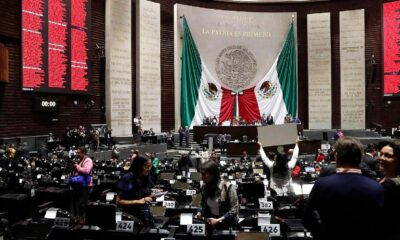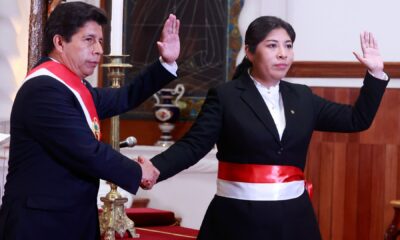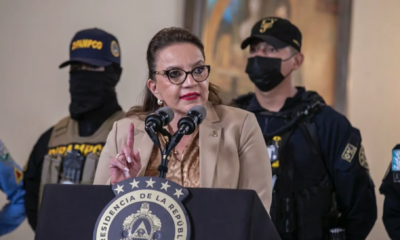International
Lula, back in Brasilia, gets down to politics
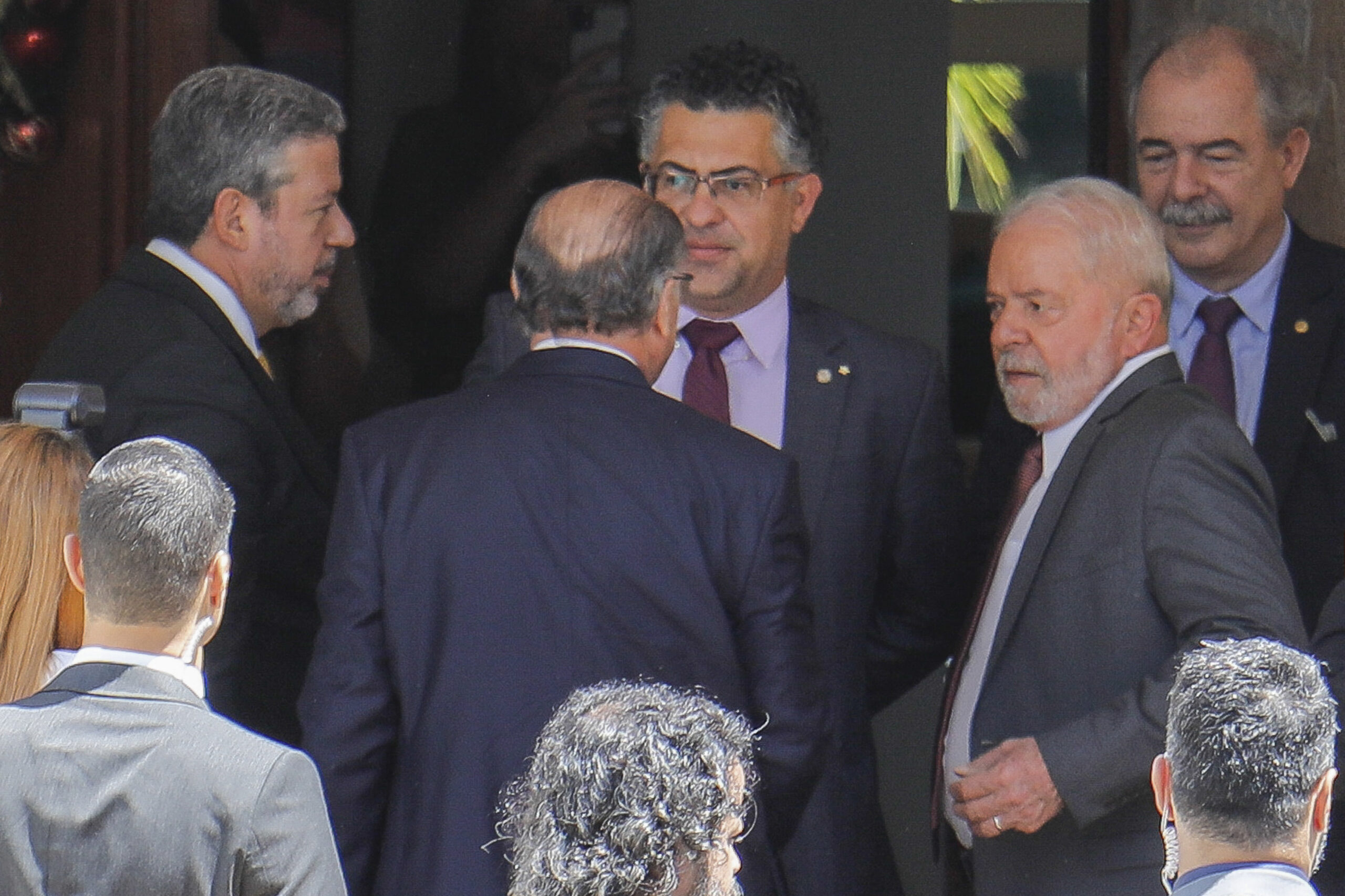
| By AFP |
President-elect Luiz Inacio Lula da Silva met the leaders of both houses of Congress Wednesday, calling for “dialogue” in a divided Brazil as he sought support for his agenda after his inauguration on January 1.
The veteran leftist, who narrowly defeated far-right President Jair Bolsonaro in last month’s elections, is scrambling to secure support for his social spending plans ahead of his swearing-in, but is far short of a majority in Congress.
Making his return to the capital, Brasilia, the former president (2003-2010) kicked things off by meeting the speaker of the lower house, Arthur Lira, previously a Bolsonaro ally.
“The country needs dialogue and normality,” Lula posted on Twitter afterwards, along with a video of he and Lira shaking hands.
He also met Senate president Rodrigo Pacheco.
Brazil was left torn by the October 30 runoff election, which brought a curtain down on four polarizing years under Bolsonaro — who lost by the slimmest margin in the country’s modern history.
Lula, 77, faces the task of healing the nation’s wounds — but also more pragmatic concerns for Latin America’s biggest economy.
That includes finding money for campaign promises such as a minimum-wage increase and continuing a beefed-up welfare program of 600 reais ($115) a month that was introduced by Bolsonaro but not funded in his 2023 budget.
Lula is racing to find the needed funding, with options such as passing a constitutional amendment allowing the government to break its spending cap next year.
That would likely require support from Lira, who is from a loose coalition of parties known as the “Centrao,” a group known for striking alliances with whoever is in power — in exchange for government pork.
Vice President-elect Geraldo Alckmin, who is heading Lula’s transition team, said Tuesday the incoming administration was still evaluating other options, as well.
Lula also had meetings Wednesday with Supreme Court Chief Justice Rosa Weber and Superior Electoral Tribunal head Alexandre de Moraes.
Anticipation is meanwhile running high for his first cabinet appointments, especially from markets anxious over the key post of finance minister.
Alckmin named a four-member economic transition team Tuesday, with two market-friendly economists and two close to Lula’s Workers’ Party (PT).
International
Claudia Sheinbaum: Operation Against ‘El Mencho’ Was Based on Pending Arrest Warrants

Mexico’s President Claudia Sheinbaum on Wednesday rejected claims that the military operation that resulted in the death of Nemesio Oseguera Cervantes, known as “El Mencho,” leader of the Jalisco New Generation Cartel (CJNG), was carried out under pressure from the United States government.
Sheinbaum explained that the deployment of federal forces was aimed at executing outstanding arrest warrants against Oseguera Cervantes, who was considered one of the most wanted criminals in both Mexico and the United States.
“That was not the objective (to ease pressure from the United States). It is very important, and I want to repeat it. This individual had an arrest warrant, or several,” Sheinbaum said, referring to the operation conducted on February 22.
According to the president, the initial goal was to capture Oseguera Cervantes, but military forces responded after coming under attack during the intervention.
“The operation was to detain him. The problem is that they were attacked — the Secretariat of National Defense — and they responded at that moment,” she said.
The president insisted that the action was not carried out in response to external demands, although she acknowledged intelligence cooperation with the United States.
“It was not done in any way because of pressure from the United States, not at all. Of course, there was intelligence information from the United States that was used specifically,” she concluded.
International
Spain Denies Any Agreement to Cooperate with U.S. Military in Iran Operations
International
White House Says Spain Agrees to Cooperate with U.S. Military After Trump Threatens Trade Embargo

White House Press Secretary Karoline Leavitt said Wednesday that Spain has agreed “in recent hours” to cooperate with the U.S. military, following President Donald Trump’s threat to impose a trade embargo on Madrid.
Trump had warned of potential commercial measures after Spain reportedly refused to allow the Pentagon to use facilities at Spanish military bases for operations related to Iran.
“With respect to Spain, I think you heard the president’s message yesterday loud and clear, and I understand that in recent hours they have agreed to cooperate with the United States military,” Leavitt said during a press briefing.
She added that the U.S. military is currently coordinating with its counterparts in Spain. However, the president expects broader support.
“The president expects that all of Europe, all of our European allies, of course, will cooperate in this important mission — not only for the United States, but also for Europe,” Leavitt said.
Her remarks came in response to questions about Spain’s position and its role as a U.S. ally amid rising tensions surrounding operations involving Iran.
-

 International4 days ago
International4 days agoIran Reports 201 Dead, 747 Injured After U.S. and Israeli Strikes
-

 International3 days ago
International3 days agoBrazil’s Supreme Court Rejects Bolsonaro’s Bid for House Arrest
-

 International3 days ago
International3 days agoAnti-ICE Billboard Campaign Targets Immigration Spending in 31 U.S. Cities
-

 International2 days ago
International2 days agoSpain’s Prime Minister to Address Nation Amid Trump’s Trade Threats
-

 International4 days ago
International4 days agoPope Leo XIV Urges End to ‘Spiral of Violence’ in Middle East
-

 Sin categoría5 days ago
Sin categoría5 days agoTrump: ‘We Think It’s True’ Amid Claims Iran’s Supreme Leader Was Killed
-

 International5 days ago
International5 days agoSecurity Council to Hold Emergency Meeting on Middle East Crisis
-

 International3 days ago
International3 days agoTrump Warns of ‘Major Wave’ of Attacks as Iran Conflict Escalates
-

 International22 hours ago
International22 hours agoWhite House Says Spain Agrees to Cooperate with U.S. Military After Trump Threatens Trade Embargo
-

 International3 days ago
International3 days agoMexico Calls for Immediate Probe After National Dies in ICE Custody
-

 International2 days ago
International2 days agoNew York Announces First 2,000 Seats in Universal 2-K Program
-

 International22 hours ago
International22 hours agoSpain Denies Any Agreement to Cooperate with U.S. Military in Iran Operations
-

 Central America22 hours ago
Central America22 hours agoNicaragua Held Responsible for Harassment of Opposition Prosecutor and His Family
-

 International3 days ago
International3 days agoBolivia Orders Three Investigations Into Deadly Military Plane Crash
-

 International2 days ago
International2 days agoWarner Bros. Developing First ‘Game of Thrones’ Movie With ‘Andor’ Writer
-

 Central America3 days ago
Central America3 days agoPanama Canal Monitoring Trade as Middle East Conflict Disrupts Shipping
-

 Central America2 days ago
Central America2 days agoGuatemala’s Attorney General Fails in Bid for Top Court Seat Amid Corruption Allegations
-

 International22 hours ago
International22 hours agoClaudia Sheinbaum: Operation Against ‘El Mencho’ Was Based on Pending Arrest Warrants































